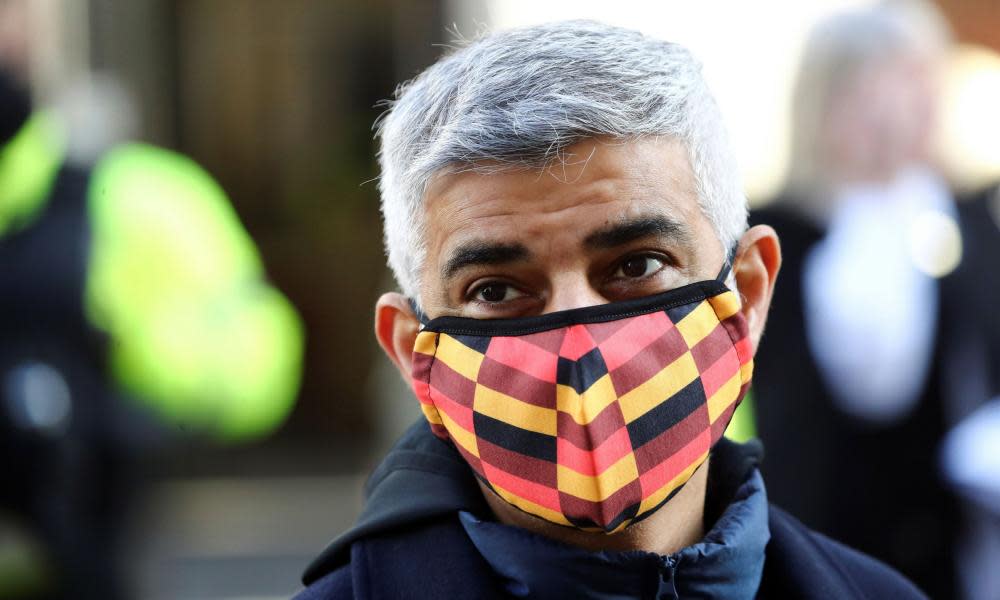Courts logjam leaves 227,000 waiting for justice in London alone

The scale of the courts backlog is highlighted today with figures showing that, in London alone, nearly a quarter of a million people are waiting for their cases to be heard.
The extent of the logjam was revealed as Sadiq Khan, the city’s mayor called on the government to build a “large-scale, secure facility” to start clearing high-priority cases.
Data from the Metropolitan police reveals that the number of victims and witnesses are due to attend court currently stands at 227,000. Officers have told the mayor’s policing and crime office of at least two incidents where victims have attempted suicide after being told their trial was being delayed.
The details are revealed in a letter from Khan to the justice secretary Robert Buckland calling for urgent help to alleviate the backlog, which is so grave the mayor believes “justice is at a standstill” in the capital.
He added: “Our already stretched services in the capital are now at capacity and can no longer provide the support for any new victim coming into the system.”
It follows last month’s warning from analysts that criminal justice in the UK could “cease to function” in the next four years without reform amid forecasts that the backlog of cases could rocket to almost 200,000 by 2024.
The Crown Prosecution Service in England and Wales has also seen a large increase in its caseload, from around 100,000 in June 2019 to more than 170,000 a year later.
Although the Ministry of Justice has promised a network of Nightingale courts for socially distanced trials to tackle the massive backlog, Khan said they needed to be urgently expedited along with the building of a new facility.
“There is a need for a facility with cells for holding defendants, adequate security measures to ensure the safety of all victims and witnesses, and a large enough space to hear a multi-defendant case also while maintaining social distancing measures,” he writes.
Saying that London was “disproportionately affected” by the backlog, Khan said that the emotional wellbeing of victims and witnesses needed to be considered carefully when cancelling or adjourning trials.
Details of recent cases causing concern have been forwarded to the mayor’s office for policing and crime from the Met’s witness care units, including a man accused of being a prolific paedophile whose alleged offences spanned more than 40 years being released after his trial was delayed earlier this year.
The defendant was charged in February, with the trial scheduled for July. When that hearing was cancelled, several key witnesses pulled out. The victim of the alleged childhood abuse says he later saw the defendant out on bail in the company of young people. The victim forwarded photos to the police but was told there was nothing they could do. The trial was then scheduled for October but has now been put back to April 2021.
Another case involves a man who says he was violently assaulted by three men in May 2019, an unprovoked attack that was both homophobic and transphobic in nature.
Initially the victim was given a court date the following summer, but was told the hearing had been cancelled the evening before.
Another date was given several weeks later but was again cancelled at the last moment. The reason given for both cancellations was “complications around social distancing.”
The victim said: “This has been a terrible blow not only for myself but for all those individuals working to support me. The inconsistency of communication and the failure of the responsible agency to bring this case to trial has been hard to bear.”
The witness care unit data counts all victims and witnesses, including “professional witnesses” such as police, with the statistics relating to “pre-first hearing” data, the start of the judicial process.
The Ministry of Justice was contacted for comment but failed to reply before the Observer went to press.


